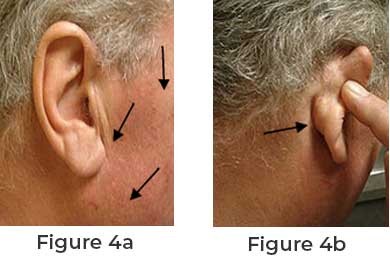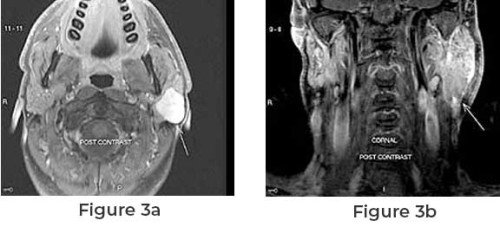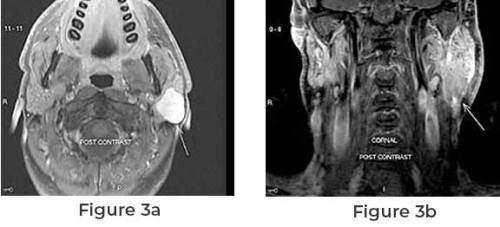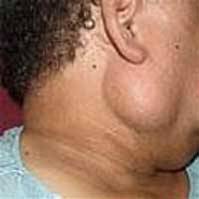Most Popular
 Facial Nerve Cancer and Parotid Tumor Surgery What You Need to Know
Facial Nerve Cancer and Parotid Tumor Surgery What You Need to Know
Facial nerve cancer is rare, with 500 US incidences annually. ...
 Parotidectomy and Facelift to Remove Parotid Gland and Rejuvenate the Appearance
Parotidectomy and Facelift to Remove Parotid Gland and Rejuvenate the Appearance
Parotidectomy and facelift are two distinct surgical procedures, each serving ...
 Know About the Parotid Cancer and Its Symptoms before Treatment
Know About the Parotid Cancer and Its Symptoms before Treatment
Parotid cancer is a rare form of cancer that originates ...



Symptoms of Mucoepidermoid Tumor and Treatment

Mucoepidermoid tumors (MET) are relatively rare tumors that can occur in various parts of the body, most commonly in the salivary glands. These tumors are typically slow-growing and may not cause symptoms in their early stages. However, as they grow larger, they can cause a variety of symptoms depending on their location and size. Mucoepidermoid tumors (METs) are relatively rare, slow-growing tumors that can develop in various glands throughout the body, but most commonly occur in the salivary glands. These tumors are typically benign, meaning they are non-cancerous, but in some cases, they can be malignant, posing a more serious health threat. You should know about the symptoms of mucoepidermoid tumors and the treatment procedures available are crucial for early detection and effective management of these tumors.
Some common symptoms of mucoepidermoid tumors include:
Different symptoms clear the doubts of surgeons to diagnose the problem and recommend the treatment.
- Swelling or a lump in the affected area, such as the neck, jaw, or mouth
- Pain or discomfort, especially if the tumor presses on nearby nerves or tissues
- Difficulty swallowing or speaking if the tumor is located in the throat or mouth
- Changes in facial appearance if the tumor affects the facial nerves or muscles
- Numbness or weakness in the face or mouth
- Persistent cough or hoarseness if the tumor affects the respiratory tract
Treatment for mucoepidermoid tumor typically involves surgical removal of the tumor, especially if it is causing symptoms or growing rapidly. In some cases, radiation therapy or chemotherapy may be recommended to shrink the tumor or kill any remaining cancer cells after surgery. The specific treatment plan will depend on factors such as the size and location of the tumor, as well as the patient's overall health and preferences.
Diagnosis Is Crucial
If a mucoepidermoid tumor is suspected based on symptoms or imaging studies, a definitive diagnosis is typically made through a biopsy, in which a small sample of tissue is removed and examined under a microscope by a pathologist.
Surgical removal of the tumor is the primary treatment for mucoepidermoid tumors. The goal of surgery is to completely excise the tumor while preserving as much of the surrounding healthy tissue and gland function as possible.
Different Types of Therapies
In cases, where the tumor cannot be completely removed surgically, therapies are recommended. If it is malignant and has a higher risk of recurrence, radiation therapy may be used as an adjunct treatment to destroy any remaining cancer cells. In rare cases of aggressive or metastatic mucoepidermoid tumors, chemotherapy may be recommended to help shrink the tumor or slow its growth.
However, chemotherapy is not typically used as a first-line treatment for mucoepidermoid tumors. Mucoepidermoid tumors are relatively rare and usually have a good prognosis when detected and treated early. However, it's important for individuals to be aware of the symptoms and seek medical attention if they experience any concerning signs or symptoms.
Consult with the doctors and get the tests done. It is crucial to know about the symptoms.